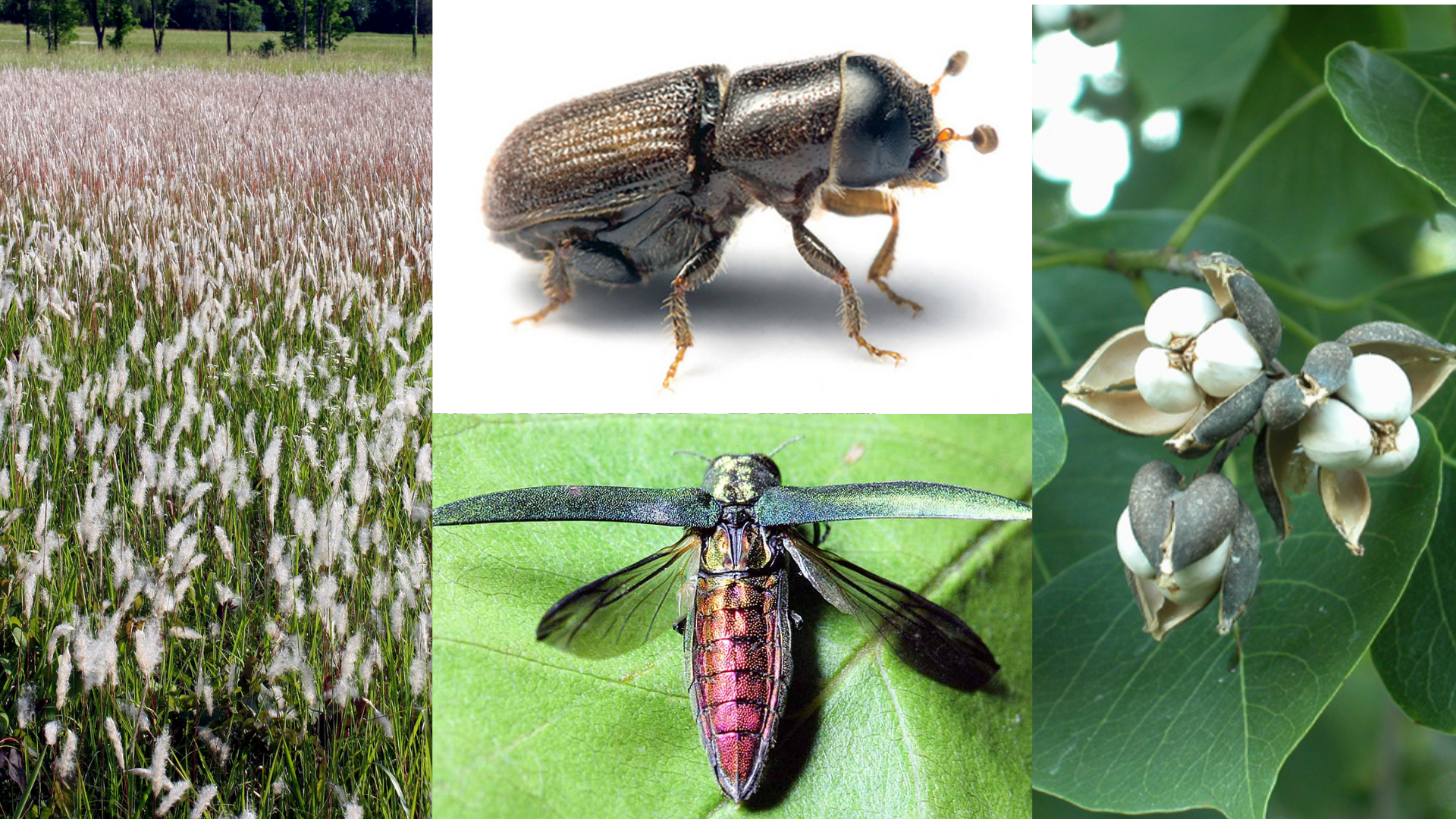Stop invasive species in YOUR tracks
Humans play a role in the spread of invasive plants and forest pests. We also play in major part in preventing the spread of these damaging species.

Mississippi is home to 19 million acres of forestland. Outdoor recreation is a favorite pastime for many citizens across the state.
But, many Mississippians are unaware that their outdoor activity can contribute to the spread of invasive plants and forest pests.
In support of part of its mission, the Mississippi Forestry Commission (MFC) is joining PlayCleanGo.org and other organizations in recognizing PlayCleanGo Awareness Week. This campaign shows outdoor enthusiasts how they can help stop the spread of invasive plants and forest pests.
“Whether it’s for work or play, many Mississippians spend a great deal of time in our state’s forests,” said Russell Bozeman, MFC state forester. “What we want people to understand is that not everything in our forests is native to the area, and humans actually play a role in not only the spread of invasive plants and insects, but also in preventing their spread.”
What are invasive species?
Invasive species are plants, animals, and microorganisms that are not native to a particular area. They are also species that are capable of causing severe damage in areas outside their normal range, harming the economy, the environment, or human health once they become established.
“Unfortunately, Mississippi is now the home to a number of invasive plants and destructive forest pests,” Bozeman said. “Plants like cogongrass and Chinese tallow tree can suffocate desirable species, while forest pests like the southern pine beetle and Ips engraver beetle can destroy forest stands.”
How are invasive species spread?
The spread of invasive plants and forest pests is either short-distance or long-distance.
Almost all short-distance spread is through natural dispersal mechanisms, like wind or rain. In their home territory, short distance spread is rarely a problem because the resident plants and animals have evolved to coexist more or less peaceably.
In contrast, long-distance spread is almost always human-assisted. Plant seeds or insects are carried a long distance on clothing, vehicles or firewood and introduced to a new area where the natural plants have not built any tolerance for the invasive species. Aggressive species, such as cogongrass, quickly expand their short distance range because there are no natural enemies in the new habitat.
Do humans play a role?
Whether it is for work or play, many Mississippians spend a great deal of time outdoors. Most people are unaware that certain plants or insects are not native and can be harmful to a new habitat.
Many weed seeds move well in soil, so muddy boots or vehicle tires can transport these seeds a great distance. Also, some weed seeds have hooks or barbs that attach to clothing.
Many invasive plants are attractive and are found in nurseries as ornamentals. They can also hide in nursery stock, potting mixes, or home décor made from raw wood products.
Insects and disease pests of trees can be found in cut firewood and wood pallets.
“Humans play a significant role in the spread of invasive plants and pests,” said Bozeman. “The problem is that we don’t realize we’ve transported an invasive species until it’s too late. However, if we are aware of how these harmful species are spread, we can begin to take precautions to protect our trees and forests.”
Why should we care?
Unless we can slow the spread of invasive species, life as we currently know it will change dramatically; from where we live and work, to the places we go, the products we buy, how we relax and play with our kids. All of it has the potential to change with the spread of invasive species.
So much of the long-distance spread is connected with the activities of people simply enjoying the great outdoors, it’s up to us to become informed, attentive, and accountable for our potential role in the spread of invasive species.
What can we do?
There are a number of precautions individuals can take to help prevent the spread of invasive species.
- After hiking or walking through the woods, clean your shoes and clothing off before you get in your vehicle to return home.
- If possible, clean your vehicle and tires before you travel too far from where you went into the woods.
- Don’t move firewood. Never haul firewood more than 10 miles away from where it was cut.
- Buy plants that are native to the area from a reputable nursery.
- Avoid self-seeding plants, as they can spread outside the flower bed.
“The MFC is actively fighting against the spread of invasive species in Mississippi, but we need help from individuals,” Bozeman said. “The best thing people can do to prevent the spread of invasives is to be aware that not everything in the forests are native to the area and to understand that humans are one of the primary ways these harmful species spread throughout our state.”
Click here for additional information and resources about invasive species.
